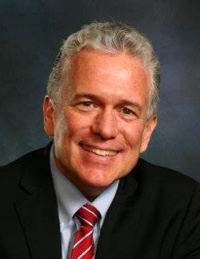Types of mortgage expert witnesses
There are different types of professionals that may serve as a mortgage expert witness. Depending on the individual’s experience and knowledge, a mortgage expert witness may specialize in one or more areas, which may include:
- Commercial hard money loans
- Mortgage fraud
- Private money lending (hard money lending)
- Duties and standards of care for mortgage brokers or originators
- Standards of care, and suitability standards relating to trust deed investors
- Loan servicing, loan modification, or foreclosure
- Origination, underwriting and approval of residential mortgages
- Organizational, origination and loan servicing requirements under Dodd-Frank
Regardless of an expert’s area of specialty, certain factors may be considered before retaining or designating them as an expert. The following information discusses information to consider about the different “types” of expert witnesses.
- Banking experts: Generally coming from a background of 30 to 40 years of employment at actual banks, these mortgage expert witnesses may have knowledge of loan origination and underwriting, banking procedures such as business loans, checking, savings and credit line procedures, governmental regulations applying to banking, and business banking issues. It’s important to consider this expert’s familiarity with cases originated by non-bank entities, such as mortgage brokers, California Finance Lenders, or non-depository mortgage bankers. Consideration must also be given to the possible need for testimony from an expert with direct, hands-on experience in transactions, as opposed to a primarily executive or managerial-level knowledge of the functions of lending.
- Institutional experts: Institutional expert witnesses often work or previously worked at large mortgage banking companies, banks, or other institutions that originate primarily “A-paper” or bank-quality loans. These loans may be sold to FNMA, FHLMC, GNMA, and may be insured by FHA/HUD or by private mortgage insurance companies. This type of expert will have worked for a number of years in the origination of institutional loans, with one or more of the types of institutions mentioned, or as a loan broker. Their expertise is often limited to this type of lending.
- Attorneys with Mortgage Experience: There are some attorneys who have experience in the mortgage business, but be certain to verify that their experience is in the specific area of litigation. For example, an expert in institutional lending may well not be appropriate as an expert in a case involving loans made or arranged with funds from private investor – instead, a private lending expert witness may be a better choice. As with all experts, be sure to query the attorney as to when he or she was actually engaged in the mortgage industry, as practices and standards change over time.
- Mortgage Scholars or Compliance Experts: Where these experts may be the most knowledgeable with respect to rules, regulations and requirements of lending, they often have little, if any actual experience originating loans. While they may be valuable in directing an attorney to specific regulations and laws, their views may be completely formed by the study of regulation and law, without the benefit of practical experience.
- Independent Mortgage Broker / Lenders: These experts may operate or work for companies that both broker loans to institutional and private money lenders, and may also function as funding lenders, loaning their own funds. They may also function as loan servicers, collecting payments from borrowers on behalf of lenders. With this type of mortgage lending expert witnesses, it may be necessary to confirm their understanding of applicable laws and regulations that affect lending practices, as they have often not had the benefit of the compliance training and supervision available at larger financial institutions.
- “Consumer Advocate” or “Lender Advocate” Experts: In some cases, these “lending liability” expert witnesses developed their interest in mortgage litigation because of their often strong feelings toward the rights of borrowers/consumers or toward protecting the ability of lenders/brokers to operate their businesses. Where they offer to provide unbiased testimony, their objectivity could be challenged if they’ve produced a lot of strongly pro-consumer or pro-business writings that opposing counsel may be able to locate through a simple internet search, or if recent published writings of the expert are requested at time of deposition or testimony.
As with experts in other fields, what a mortgage expert witness won’t do may be as or more important as what they do, in their willingness to turn down cases they’re not truly qualified to opine on. Hopefully, any expert you consider will give careful consideration as to whether they are truly qualified for the case in which you’re involved.
Joffrey@asksw.com
(818)635-1777


